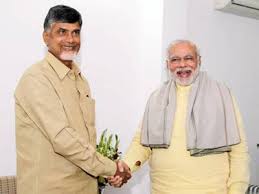New Delhi, Apr 27: The number of COVID-19 cases climbed to 28,380 and the death toll due to it rose to 886 in the country on Monday, registering a record increase of 60 deaths in 24 hours, according to the Union Health Ministry.
There has been a spike of 1,463 cases since Sunday evening.
The number of active COVID-19 cases stood at 21,132, while 6,361 people have recovered, and one patient has migrated, the ministry said.
Thus, around 22.41 per cent of patients have recovered in the country so far.
The total number of cases includes 111 foreign nationals.
A total of 60 deaths were reported since Sunday evening, of which 19 fatalities were reported from Maharashtra, 18 from Gujarat, eight from Rajasthan, seven from Madhya Pradesh, two each from Karnataka, West Bengal and Uttar Pradesh, and one each from Punjab and Tamil Nadu.
Of the 886 deaths, Maharashtra tops the tally with 342 fatalities, followed by Gujarat at 151, Madhya Pradesh at 106, Delhi at 54, Rajasthan at 41, and Andhra Pradesh and Uttar Pradesh at 31 each.
The death toll reached 26 in Telangana, 24 in Tamil Nadu while West Bengal and Karnataka have reported 20 deaths each.
Punjab has registered 18 fatalities so far. The disease has claimed six lives in Jammu and Kashmir, four in Kerala while Jharkhand and Haryana have recorded three COVID-19 deaths each.
Bihar has reported two deaths, while Meghalaya, Himachal Pradesh, Odisha and Assam have reported one fatality each, according to the ministry data.
According to the Health Ministry data updated in the evening, the highest number of confirmed cases in the country are from Maharashtra at 8,068, followed by Gujarat at 3,301, Delhi at 2,918, Rajasthan at 2,185, Madhya Pradesh at 2,168, Uttar Pradesh at 1,955 and Tamil Nadu at 1,885.
The number of COVID-19 cases has gone up to 1,177 in Andhra Pradesh and 1,002 in Telangana.
The number of cases has risen to 649 in West Bengal, 523 in Jammu and Kashmir, 511 in Karnataka, 469 in Kerala, 313 in Punjab and 289 in Haryana.
Bihar has reported 277 novel coronavirus cases, while Odisha has 108 cases. Eighty-two people have been infected with the virus in Jharkhand and 51 in Uttarakhand.
Himachal Pradesh has 40 cases, Chhattisgarh has 37 and Assam has registered 36 infections each so far.
Andaman and Nicobar Islands has 33 COVID-19 cases while Chandigarh has 30 cases and Ladakh has reported 20 infections so far.
Meghalaya has reported 12 cases, Puducherry has eight cases while Goa has seven COVID-19 cases.
Manipur and Tripura have two cases each, while Mizoram and Arunachal Pradesh have reported a case each.






Comments
Add new comment